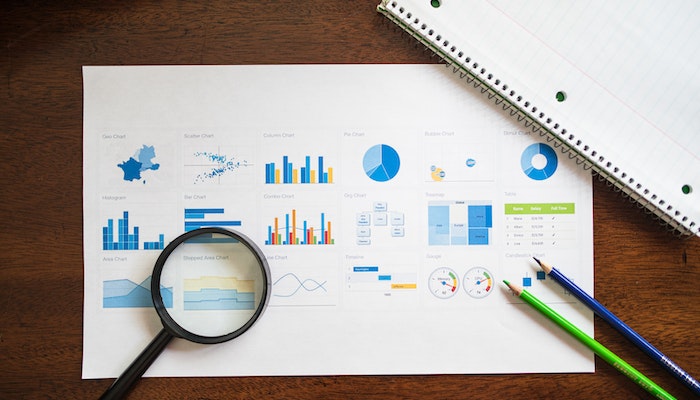In today’s fast-paced business environment, managing finances effectively is crucial for the success and growth of any organization. As businesses grow in scale and complexity, manual bookkeeping becomes increasingly challenging and prone to errors. This is where accounting software comes to the rescue.
Accounting software is a powerful tool that automates financial processes, streamlines operations, and provides accurate insights into your business’s financial health. In this comprehensive guide, we will explore the world of accounting software, its benefits, and how it can revolutionize your financial management.
 |
| Image ource: pexels.com |
Accounting Software: Simplifying Financial Tasks
Accounting software is a digital solution designed to simplify and automate financial tasks, such as invoicing, expense tracking, payroll management, and financial reporting. It eliminates the need for manual calculations, reducing human errors and saving valuable time. By organizing and centralizing financial data, accounting software provides real-time visibility into your business’s financial performance, allowing you to make informed decisions.
Benefits of Accounting Software
Increased Efficiency and Accuracy
With accounting software, manual data entry and calculations become a thing of the past. The software automates repetitive tasks, such as data entry, bank reconciliation, and tax calculations, reducing the likelihood of errors. This increased accuracy saves time, improves efficiency, and ensures that your financial records are always up to date.
- Time-Saving Features
Accounting software offers a wide range of time-saving features that simplify day-to-day financial tasks. Features like automated invoicing, recurring billing, and expense tracking streamline processes, freeing up valuable time for you to focus on growing your business.
- Real-Time Financial Insights
One of the significant advantages of accounting software is its ability to provide real-time financial insights. With just a few clicks, you can generate detailed reports on cash flow, profit and loss, balance sheets, and more. These reports offer a comprehensive view of your business’s financial health, allowing you to identify trends, make data-driven decisions, and plan for the future.
- Enhanced Data Security
Manual record-keeping puts your business at risk of data loss or theft. Accounting software provides a secure digital environment for your financial data. With features like user permissions, data encryption, and regular backups, your sensitive financial information is protected from unauthorized access and potential disasters.
- Improved Collaboration and Accessibility
In today’s digital age, remote work and collaboration are more prevalent than ever. Accounting software enables seamless collaboration among team members, accountants, and stakeholders. With cloud-based solutions, you can access your financial data anytime, anywhere, using any device with an internet connection. This accessibility ensures that everyone is on the same page and can work together efficiently.
- Compliance with Financial Regulations
Staying compliant with financial regulations is essential for businesses of all sizes. Accounting software automates tax calculations, tracks expenses, and generates reports that help you meet your legal obligations. By staying compliant, you avoid penalties and maintain a good reputation in the eyes of regulatory authorities and stakeholders.
Accounting Software FAQs
FAQ 1: What are the key features to look for in accounting software?
Accounting software comes with various features that cater to different business needs. Some key features to consider include:
- Invoicing and billing capabilities
- Expense tracking and management
- Bank reconciliation
- Financial reporting
- Payroll management
- Inventory management (for businesses with physical products)
- Integration with other business tools (e.g., CRM, e-commerce platforms)
FAQ 2: Is accounting software suitable for small businesses?
Absolutely! In fact, accounting software is particularly beneficial for small businesses. It helps automate financial processes, reduces the need for manual labor, and provides accurate insights into the financial health of your business. By leveraging accounting software, small businesses can save time, reduce errors, and focus on growth.
FAQ 3: How secure is accounting software?
Accounting software prioritizes data security to protect your financial information. Reputable software providers implement robust security measures, including data encryption, secure servers, regular backups, and user permissions. However, it is essential to choose a trusted provider and follow best practices for data security within your organization.
FAQ 4: Can accounting software integrate with other business tools?
Yes, many accounting software solutions offer integrations with popular business tools like customer relationship management (CRM) systems, e-commerce platforms, and project management software. These integrations streamline data flow and enhance overall business efficiency by eliminating the need for manual data entry and ensuring data consistency across different systems.
FAQ 5: How can accounting software help with tax preparation?
Accounting software simplifies tax preparation by automating tax calculations and generating reports that summarize your financial transactions. It categorizes income and expenses, calculates sales tax, and generates the necessary documentation required for tax filing. This not only saves time but also reduces the chances of errors in your tax filings.
FAQ 6: What are the cost considerations when choosing accounting software?
When evaluating accounting software options, it’s essential to consider the cost factors. Some common pricing models include monthly subscriptions, annual subscriptions, and one-time purchases. Additionally, some software providers offer different pricing tiers based on the features and level of support you require. It’s crucial to assess your business’s needs and budget to choose the most cost-effective solution.
Conclusion
Accounting software has revolutionized financial management for businesses of all sizes. By automating financial tasks, providing real-time insights, and enhancing collaboration, accounting software empowers you to make informed decisions, streamline operations, and achieve sustainable growth. Whether you’re a small business owner or managing finances for a large corporation, embracing accounting software can simplify your financial processes and set you on the path to success.